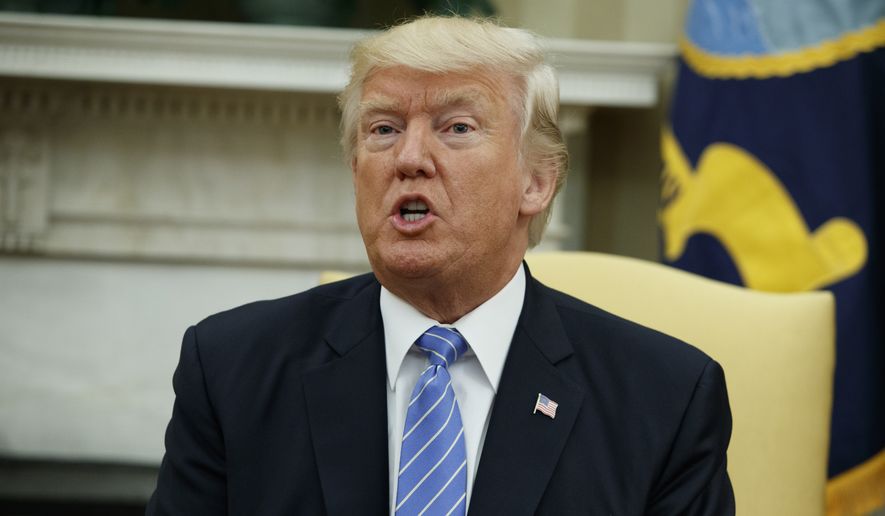Priests for Life and Abortion Free New Mexico have released a series of undercover audio recordings of abortion clinic workers scheduling procedures as late as 33 weeks of pregnancy — about a month and a half before the average delivery date of 40 weeks.
What’s more, the pro-life Center for Medical Progress released last month an undercover video of Ann Schutt-Aine, director of abortion services at Planned Parenthood Gulf Coast, admitting to using forceps to hold a fetus inside of a mother’s womb while ripping off its limbs to prevent a partial-birth abortion from taking place.
“That’s exactly what Donald Trump said in the third and final presidential debate,” said Mallory Quigley, communications director for the pro-life Susan B. Anthony List. “He was ridiculed by the media at the time, but in their own words, these abortionists are proving the president was spot on in his analysis about what’s happening.”
Since April, Priests for Life and Abortion Free New Mexico have released several covertly recorded conversations with employees at Southwestern Women’s Options, an abortion clinic in Albuquerque, to raise awareness about the prevalence of late-term abortion, especially in New Mexico.
In one recording taken on May 2, an unidentified woman is able to schedule an abortion at 30 weeks of pregnancy, even after she says there’s nothing wrong with the fetus.
“It’s more just life happening,” the woman says in the recording. “My husband lost his job, we already have some kids, and we were planning to continue the pregnancy, but now, with our world falling apart, we just felt like this was the best way out.”
Another recording on April 12 shows clinic workers scheduling an abortion for a woman who says her 33-week-old fetus has Down syndrome.
Father Stephen Imbarrato of Priests for Life said New Mexico has become the “late-term abortion capital” of the United States since Curtis Boyd, an associate of the slain late-term abortionist George Tiller, opened Southwestern Women’s Options in 2008.
“There are no restrictions, no oversight, nothing going on with regard to abortion in New Mexico other than that the Democratic Party totally supports it, and the Republican Party, for the most part, is condoning it,” Father Imbarrato said. “So we have been doing everything necessary to try to bring this to the national spotlight.”
Those efforts paid off last year, when the U.S. House Select Investigative Panel on Infant Lives referred Southwestern Women’s Options for criminal investigation to determine whether the clinic illicitly benefited from the sale of fetal tissue from abortions.
Matt Baca, a spokesman for New Mexico Attorney General Hector Balderas, said an investigation into Southwestern Women’s Options is “underway.”
Southwestern Women’s Options could not be reached for comment by press time.
The federal Centers for Disease Control and Prevention estimates nearly 13,000 second- and third-trimester abortions are performed every year.
In the final presidential debate, Mr. Trump was asked about late-term and partial-birth abortion. He said: “I think it’s terrible in the ninth month, you can take the baby and rip the baby out of the womb of the mother just prior to the birth of the baby.”
Cecile Richards, president of the Planned Parenthood Federation of America, accused him at the time of “a complete lack of understanding about women’s medical care.”
Members of the media were also quick to denounce Mr. Trump, with several outlets reporting that late-term abortions are performed only when fetal abnormalities are detected late in pregnancies.
But research shows women tend to seek late-term abortions if they are raising children alone, are depressed or using illicit substances, are in a high-conflict relationship, if they had trouble deciding quickly or if they are young and have never been pregnant before.
Ms. Quigley also said there’s nothing in Roe v. Wade or Doe v. Bolton, the Supreme Court cases that created a constitutional right to an abortion, that prohibits late-term abortion because of their broad exceptions for the health of the mother.
“Taken together, those cases do allow the intending physician — aka the abortionist — to be the one to decide whether an abortion is necessary to preserve the health of the woman,” she said. “But this health exception is very broadly interpreted.”
She said she “wasn’t surprised” about how the media reacted to Mr. Trump. “I don’t think people want to believe that this is happening in our country.”
• Bradford Richardson can be reached at brichardson@washingtontimes.com.




Please read our comment policy before commenting.